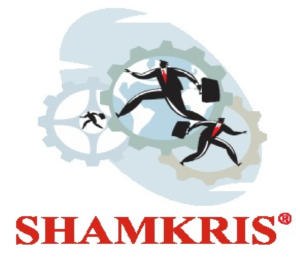Textile & Textiles Products Industry
What is Textile & Textiles Products Industry?
Textile products are defined as raw, semi-worked, semi-manufactured, manufactured, semi-made-up, or made-up of products that are exclusively composed of textile fibres, regardless of the mixing or assembly process employed.
To discern the vital differences between textiles and fabric, the term ‘textile’ must be clearly defined. The definition of textile is any material made of interlacing fibres, including carpet and geotextiles. Any woven or knitted fabric is a textile.
Many textile companies in this industry today are vertically integrated like the process described previously. Textile fabrics can include bolts of fabric, but also materials such as carpeting, towels, upholstery, or even industrial products such as fire hoses.
- 1. Yarn manufacturing. Traditionally, yarn manufacturing comprises a series of processes involved in converting the fiber into yarn. …
- 2. Fabric manufacturing. …
- 3. Garment manufacturing. …
- 4. Technical textile.
Textile & Textiles Products

Preparation and spinning of textile fibres

Weaving of textiles

Finishing of textiles

Manufacture of knitted and crocheted fabrics

Manufacture of made-up textile articles, except apparel

Manufacture of carpets and rugs

Manufacture of cordage, rope, twine and netting

Manufacture of non-wovens and articles made from non-wovens, except apparel

Manufacture of other technical and industrial textiles

Manufacture of other textiles n.e.c.

Manufacture of leather clothes

Manufacture of workwear

Manufacture of other outerwear

Manufacture of underwear

Manufacture of other wearing apparel and accessories

Manufacture of articles of fur

Manufacture of knitted and crocheted hosiery

Manufacture of other knitted and crocheted apparel

Tanning and dressing of leather; dressing and dyeing of fur

Manufacture of luggage, handbags and the like, saddlery and harness

Manufacture of footwear
Role of Shamkris
A Project Report is a document that provides details on the overall picture of the proposed business. The project report gives an account of the project proposal to ascertain the prospects of the proposed plan/activity.
Shamkris will provide a Project report covering Industry License requirements, competitor analysis, Land requirements, machinery requirements, equipment requirements, and financial requirements.
Some of the areas covered in the project report are outlined below:
- Introduction
- Project Description
- Uses and Applications
- Market Survey
- Raw Materials
- Manufacturing Process
- Process Description
- Process Flow Diagram
- Plant Layout
- Details of Plant & Machinery
- Suppliers of Raw Materials
- Suppliers of Plant & Machinery
- Plant Location Factors
- Land & building Required
- Power and Water Required
- Details of Manpower Required
- Financials of the Project
- License and application Certificate
Financials of the Project includes:
- Land and Building Costs
- Plant and Machinery Costs
- Other Fixed Assets
- Fixed Capital Investment
- Raw Material Costs
- Salaries and Wages
- Total Working Capital
- Cost of Project
- Total Capital Investment
- Cost of Production
- Turnover per Annum
- Profitability Analysis
- 5-year Profit Analysis
- Break-even Point
- Resources of Finance
- Cash Flow Statement
- Projected Balance Sheet
FAQ
Textile products defined as raw, semi-worked, semi-manufactured, manufactured, semi-made-up or made-up of products which are exclusively composed of textile fibres, regardless of the mixing or assembly process employed. From: Quality Characterisation of Apparel, 2009.
- 1. Yarn manufacturing. Traditionally, yarn manufacturing comprises a series of processes involved in converting the fiber into yarn. …
- 2. Fabric manufacturing. …
- 3. Garment manufacturing. …
- 4. Technical textile.
